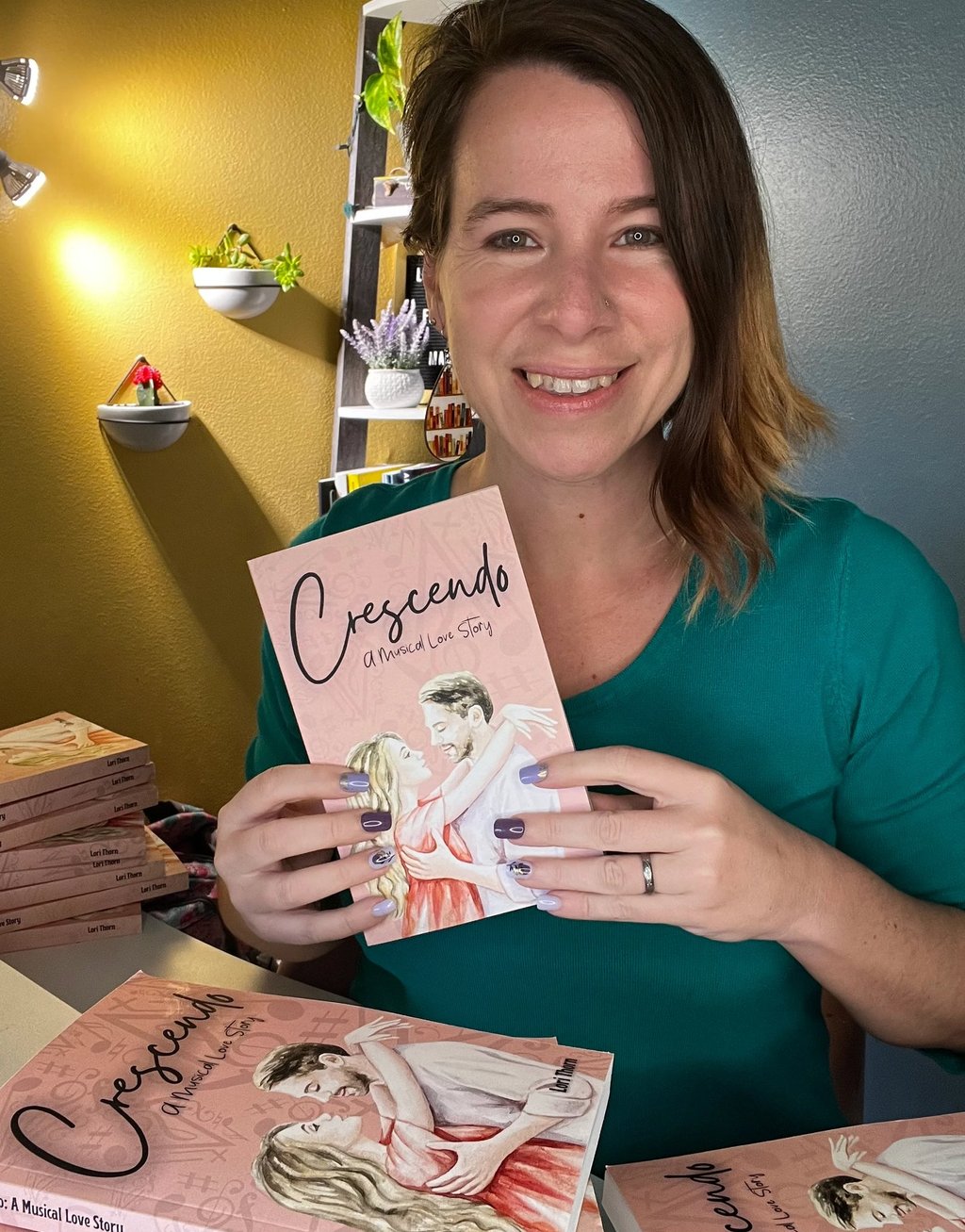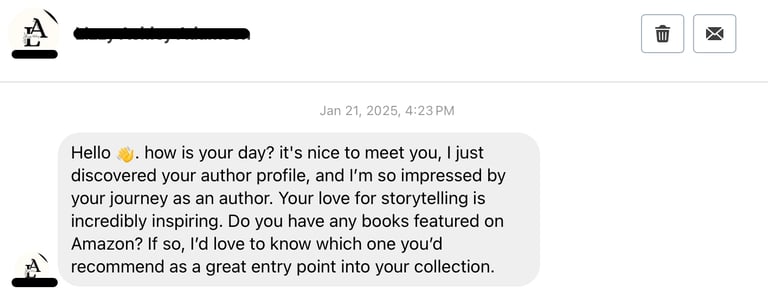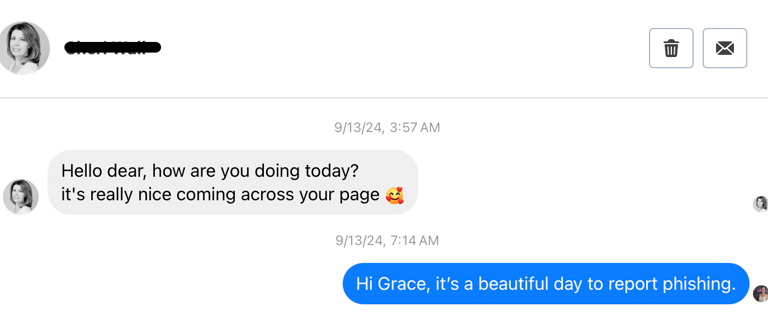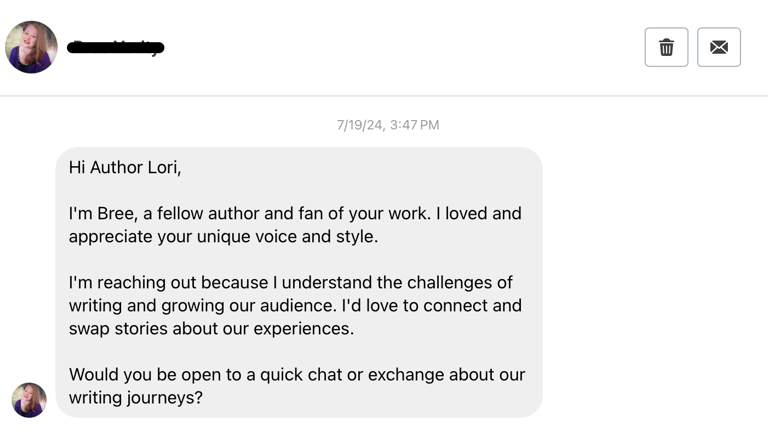Book Lovers Beware
Guest Blog Post: How to Avoid Rogue Author Accounts
WRITING
Lori Thorn
3/26/20254 min read


My post content
Book Lovers Beware
How to Avoid Rogue Author Accounts
Being an author is incredible. It is a privilege to make stories come alive, fall in love with your characters, be part of a supportive community of fellow authors and readers, and experience the thrill of growing your craft.
As with anything, there are hardships to overcome. Editing and marketing are often mentioned when someone asks about an author's struggles. Yet another frequent trial is rarely discussed and could affect readers and authors alike: rogue social media accounts. These accounts impersonate an author and often look capital-C Convincing.
I will share ways to spot these false accounts, but to understand why they exist, I need to first reveal another (related) author struggle.
Many authors, myself included, receive an overwhelming amount of predatory service offerings via social media. The people behind these messages understand the marketing hardships authors face and come bearing too-good-to-be-true solutions that will separate an author from their money.
Fortunately, these are easy to spot! If the rogue author accounts are the final boss in your game, these messages would be the first enemy you can defeat without much experience.
How to Identify Predatory Service Offerings
1. Always be suspicious of messages on social media. Fans tend to engage with posts, not send messages. When they do send messages, they tend to identify themselves as fans of your work in a specific way.
2. People offering services have a variety of tactics to kick off their messages. The most frequent are asking where your books are available from, saying they are impressed or inspired by your being an author but without any indication they’re familiar with your works, or by a simple greeting. These are all methods to lure you into a conversation that will soon turn into a pitch for some sort of service, commonly engagement boosting or creating a life-changing book trailer.
3. If you engage in conversation, you may find that the grammar and word choice that meets you is lacking.
4. If you express that you are not interested in what they offer, they will become insistent, question you, or even provide some free items or services to prove their talent.
My advice is to mark the conversation as spam and move on. Nobody offering effective services will use their time reaching out to individual authors via social media.
If you are tempted to explore further (please don’t), then check their existing social media page or review pages. In every case I’ve done this for, their own engagement is crickets. Fun fact: They do not enjoy it if you call them out about that.
Now, back to the rogue accounts that are impersonating authors. These accounts have thousands of followers, frequent pictures and updates from the “author,” loads of engagement, and sometimes even links to purchase their books. They are Convincing pages that have duped many fans into following them.
But why? Why take the time and energy to replicate the actual author’s post from other forums and duplicate them on a Facebook page? Two reasons.
1. These accounts, while almost all lifted content from other forums such as Instagram, include other posts that endorse products or services. The followers believe this author to be a trusted source and are more likely to engage with their recommendations.
2. These pages reach out to other authors via messages to offer predatory services. That’s right- it’s the next level of the scam!
Here are some examples of what these messages look like:
How to Avoid Rogue Author Accounts
1. On social media platforms that offer it, check that the account is verified. This isn’t perfect. Verification is a paid service and some authors opt not to verify, however, if an account is verified, that can be relied on as the true account.
2. Refer to the author’s website or linktree. Authors want to make it easy for readers to find their accounts and follow them. They will list all their social media accounts on their websites. If they link to an Instagram but not a Facebook account, rest assured that if you find a Facebook account claiming to be them, it is an account impersonating them.
A) Similarly, there can be a true author account and an account impersonating them. To verify which account is the real one, check against their website.
If you come across a rogue account, what should you do? I’d recommend unfollowing the account. Other actions available are reporting the account, or alerting the author about the accounts existence.
The truth is that there isn’t currently a great way to combat these types of accounts. Even going through my spam folder to collect the images for this article reveals that some of the impersonating accounts who have contacted me have changed their names to another author. Being aware and taking care are our best courses of action.
Authors love what we do, and many of us love connecting on social media despite some of it’s pitfalls. Don’t let these fakers discourage you. Stay safe, and happy reading!
Lori Thorn
About Lori Thorn
Hey, I’m Lori. I write contemporary romance that will immerse you in the world. You'll want to be best friends with some characters and tempted to gossip about others.
I live in Clearwater, FL. When I'm not engaging in bookish activities, I can be found hanging with my amazing family, working out, practicing my instruments, or making vegetarian meals.
My books are available on Amazon, Kindle Unlimited, Barnes & Noble, and other online retailers, as well as directly from my website.
Connect with me:








